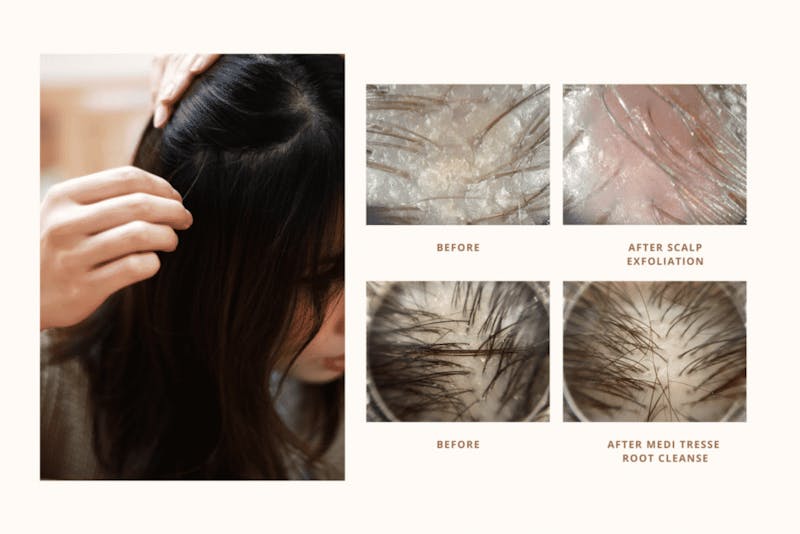Rooted in Results Let’s Get Growing
Hair loss is a symptom. We begin every journey by finding the cause, so your treatment plan isn’t just hopeful—it’s strategic, personalized, and proven to work.
Contact Our Team
I recently saw a survey that said on average women use 16 skincare and cosmetic products on their face every day, from facial cleansers to blush. Illustrating that many of us have a very involved skincare routine when it comes to our faces. However, when it comes to our scalp, we often completely ignore it, but the scalp and face are very similar and if you are concerned about your hair health then you need to consider your scalp health.
Your face and your scalp contain the highest concentration of sebaceous glands found on the body. These glands produce sebum, which is often thought of as the body’s natural oil that coats, moisturizes, and protects your hair and skin. However, this sebum can build up and clog pores or cause flaking if you are not properly washing your skin and scalp. This buildup can also cause irritation and dermatitis.
This problem has become exacerbated by current trends to wash our hair less frequently or use sulfate-free shampoos. Unfortunately, the less frequently we wash our hair, the more buildup we allow to happen. We really recommend washing your every other day or every 2 days. While we understand why there is a trend away from sulfates, sulfates are actually an important ingredient for cleansing the hair and scalp. Many sulfate-free shampoos do not remove enough of the build-up on our scalps.
The good news is that a scalp care routine does not need to be some 16-step daily process, but just a few simple changes can really help to improve the health of your scalp, which is so important for healthy hair growth.
So what can you do to improve your scalp care routine?
Most importantly, if you feel that your hair or scalp health has deteriorated, make sure to see a hair loss specialist that can provide a proper evaluation. This evaluation needs to include trichoscopy, which is a highly magnified look at the scalp, to truly be able to evaluate the scalp and hair follicles and diagnose what may be going on. Trichoscopy is included with all consultations at Medi Tresse.